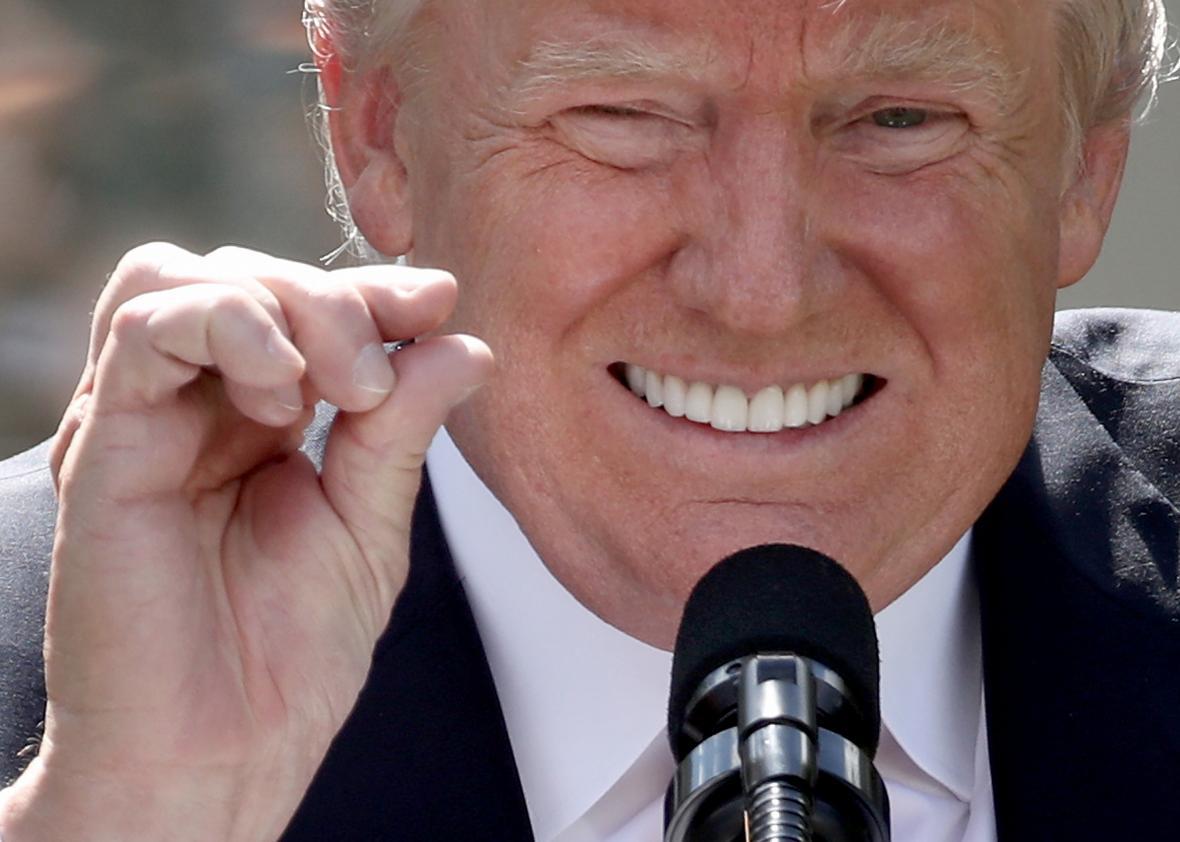President Trump came into office pillorying the Obama administration for being so easily played by foreign governments and vowing to either renegotiate or just tear up his predecessor’s signature international agreements, namely, the normalization of diplomatic relations with Cuba, the Paris Agreement on climate change, and the nuclear deal with Iran, which he announced today he was decertifying.
Given that these deals—all reached in the span of a few months between late 2014 and 2015—were forged through executive action rather than acts of Congress, theoretically nothing was stopping Trump from just scrapping them. But that’s not quite what he’s done.
While some of Trump’s advisers, especially the now-departed Michael Flynn and Steve Bannon, might have cheered for him to torch these agreements, his more cautious national security advisers have pushed back. The problem is that with all of these deals, renegotiating is not an option—the other parties have no interest in reopening discussions that were hard enough the first time—and simply walking away is not an option, because it could have serious ramifications for U.S. alliances and credibility.
So the president and his team seem to have settled on a strategy of effectively ceasing U.S. participation in these deals without technically abandoning them.
The strategy has three components: First, the president makes a highly promoted statement that he has reversed whatever “worst deal ever” is in his crosshairs that week. This rhetoric is meant to appeal to Trump’s base. Second, the text of the executive order, once it’s released, reveals upon close reading that the change of course amounts to less than Trump led people to believe and that the deal still mostly stands. This is meant to reassure allies that the grownups are still in charge. Third, over time, the Trump administration simply conducts policy as if the deal never existed, making the agreement effectively irrelevant. (The only major Obama deal that Trump did completely withdraw from was the Trans-Pacific Partnership, which, notably, hadn’t been finalized yet.)
In the case of the Paris Agreement, Trump gave a speech in June announcing that he was withdrawing from the landmark accord, boasting nonsensically that he was “elected to represent the citizens of Pittsburgh, not Paris.” But quietly over the following months, U.S. diplomats made clear to alarmed allies that they had not actually withdrawn and were instead looking at “terms on which they could be engaged under this agreement.” Of course, these machinations all somewhat academic given that the Trump administration is also gutting the Obama-era environmental regulations that would have actually made it possible for the U.S. to meet its Paris commitments.
Later that month, Trump told a cheering crowd in Miami’s Little Havana that he was reversing the “terrible and misguided deal” with Cuba—but again, not really. Trump’s moves left in place many of the Obama measures making it easy for Americans to travel to and do business in Cuba and left embassies open in both countries. But in this case, Trump’s claim to be ending the détente with Cuba has been self-fulfilling: Earlier this month, the U.S. evacuated most of its staff from Havana and expelled 15 Cuban diplomats in response to a mysterious affliction that struck U.S. diplomatic personnel in Cuba.
Trump’s statement today shows he will follow a similar course of action in decertifying Iran’s compliance with the 2015 nuclear deal. Decertification won’t technically put the U.S. in violation of the deal, and the administration is likely not to push Congress to reinstate the sanctions that would probably unravel the agreement. It’s more likely Trump’s move will amount to supporting a new crackdown on Iran’s Revolutionary Guards and probably other Iranian government activities.
This strategy seems designed to assuage Trump’s rage at having to continue implementing a deal he attacked on the campaign trail and enable him to give a speech announcing that he is disavowing it while not actually ending it. But, even if the nuclear deal lives to see another day, Trump’s moves will inevitably raise the level of tension with Iran and heighten the risk of armed confrontation.
This approach to foreign policy has similarities to Trump’s rhetoric on Obamacare: He has said that rather than continuing to attempt to repeal the law, it would be more effective to let it “explode” first and then redesign it. (He may have lit the fuse on that explosion last night.) In the case of rising tensions with Iran, the explosion could turn out to be quite literal.
